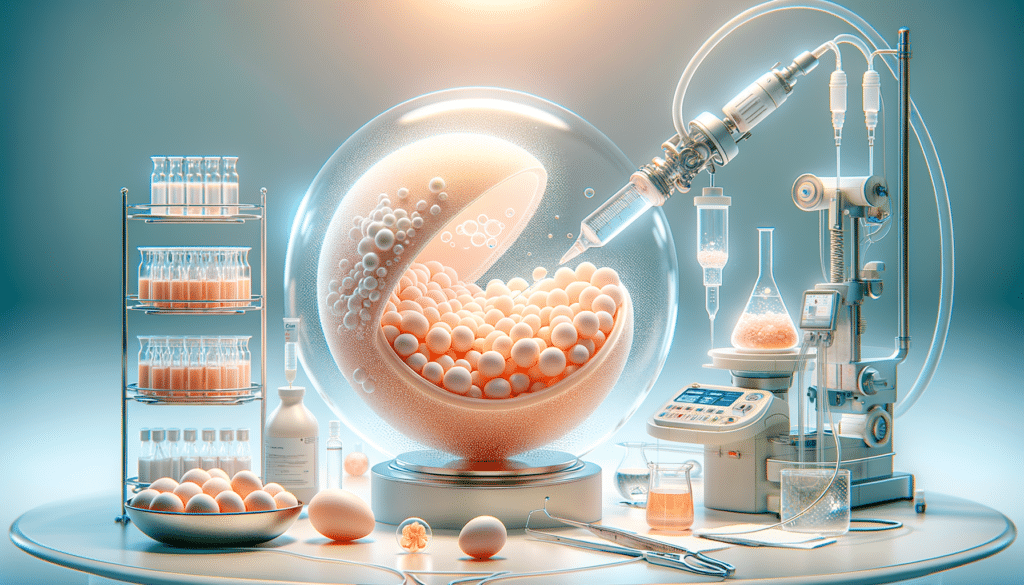The Basics of Egg Donation
Egg donation is a medical procedure where a woman donates her eggs to another individual or couple to help them conceive. This process has become a beacon of hope for many who struggle with infertility, particularly those who are unable to produce viable eggs. The procedure involves stimulating the donor’s ovaries to produce multiple eggs, retrieving these eggs, and then fertilizing them in a laboratory setting. The resulting embryos can then be transferred to the recipient’s uterus.
Egg donation is often utilized by women with premature ovarian failure, genetic disorders, or those who have undergone cancer treatments. It is also a choice for same-sex male couples using a surrogate. The process is highly regulated and requires both medical and psychological screening to ensure the safety and well-being of both donor and recipient.
Key facts about egg donation include:
- Medical Screening: Donors undergo rigorous medical testing to ensure they are healthy and free of genetic disorders.
- Psychological Evaluation: Both donors and recipients often receive counseling to prepare for the emotional aspects of the process.
- Legal Agreements: Contracts are drawn up to protect the rights and responsibilities of all parties involved.
The Egg Donation Process
The egg donation process is multifaceted, beginning with the selection of a suitable donor. Potential donors are typically between the ages of 21 and 35, as this age range is associated with higher fertility and lower risk of genetic abnormalities. Once selected, donors undergo a series of hormone treatments to stimulate the ovaries to produce multiple eggs.
The stimulation phase lasts about 10 to 14 days, during which the donor is monitored through regular ultrasounds and blood tests. Once the eggs are mature, they are retrieved in a minor surgical procedure known as follicular aspiration. The procedure is performed under sedation and involves using an ultrasound-guided needle to collect the eggs from the ovaries.
Following retrieval, the eggs are fertilized with sperm in a laboratory setting. The resulting embryos are observed for several days before the healthiest are selected for transfer. The entire process requires careful coordination and timing to ensure the best possible outcome for the recipient.
Legal and Ethical Considerations
Egg donation is not just a medical procedure but also involves significant legal and ethical considerations. Legal frameworks vary by country and region, but generally, they include guidelines for donor anonymity, compensation, and parental rights. In many places, donors remain anonymous to the recipients, though some programs allow for open donations where the donor and recipient know each other’s identities.
Compensation for egg donation is another critical aspect, with laws varying widely. Some jurisdictions allow for financial compensation, while others restrict payments to cover only the donor’s expenses. Ethical considerations also include the potential for exploitation, especially in cases where donors are financially motivated.
It’s essential for all parties involved to have a clear understanding of their rights and obligations. Legal agreements are typically drawn up to address issues such as the number of embryos created, the fate of unused embryos, and the rights of the donor regarding future contact.
Emotional and Psychological Impact
The emotional and psychological impact of egg donation should not be underestimated. For donors, the process can be both rewarding and challenging. Many donors report a sense of fulfillment from helping others achieve their dreams of parenthood. However, they may also experience a range of emotions, from anxiety about the procedure to concerns about the future of the donated eggs.
Recipients, on the other hand, often experience a mix of hope and apprehension. The prospect of achieving parenthood through egg donation can be exhilarating, but it also involves navigating complex emotional terrain, including issues of genetic connection and disclosure to the child.
Support networks, including counseling and support groups, play a vital role in helping both donors and recipients manage these emotional challenges. Open communication and a clear understanding of the process can help mitigate potential stress and foster a positive experience for all involved.
The Future of Egg Donation
As medical technology advances, the future of egg donation holds exciting possibilities. Innovations such as improved egg freezing techniques and genetic screening are enhancing the success rates of assisted reproductive technologies. Additionally, there is ongoing research into artificial gametes, which could one day offer new solutions for those unable to produce eggs or sperm.
The ethical landscape of egg donation is also evolving, with increasing discussions around donor rights, recipient needs, and the well-being of donor-conceived individuals. As society continues to grapple with these complex issues, the importance of clear regulations and ethical guidelines cannot be overstated.
Egg donation offers a path to parenthood for many who might otherwise be unable to conceive. With continued advancements and thoughtful consideration of ethical implications, it is likely to remain a vital option in the realm of reproductive medicine.





